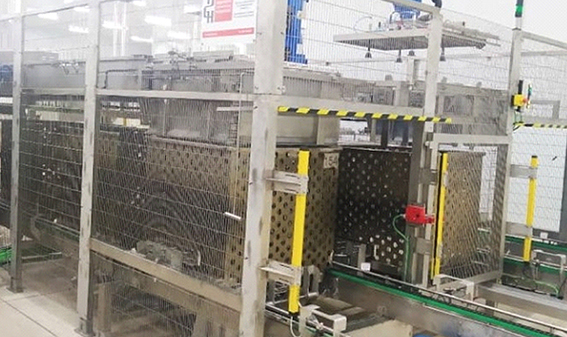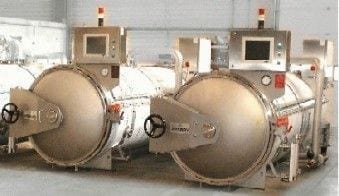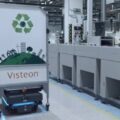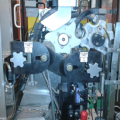DGH, known for its almost half a century of work in the area, has placed more than 700 robots in the last 4 years. Its recent proposal aims to address the situation of the flow of cans that need to pass through sterilization equipment. To prepare them for the process, it will be necessary to place them previously in “baskets” and to distance each layer. Once the procedure is finished, other machinery will take over to separate the cans contained in the carts and take them to their destination: the packing line.
Specifically, ALBO, the Galician canning company based in Salvaterra de Miño (Pontevedra) and founded by the Albo family, has achieved enormous success after more than 150 years of existence. This is due to its capacity to process up to a daily maximum of 100 tons of fish per day and more than 100 million cans per year.
The problem faced by those in charge of organizing all the transit of cans produced was the complication caused by a large number of requirements. Perform it in an orderly manner, ensuring traceability of the batches. Also execute it with the greatest possible care for the cans and the packaged product to maintain the final quality.
Also, to provide the systems with great flexibility in the lines in order to be able to work with different can formats, oval (OL), club (RR) and round (RO), all of them in different sizes. Finally, to face the previous points according to the working cycles of the seaming or packaging systems, in some cases over 1000 cans per minute.
In order to carry out sterilization in autoclaves, 3 double systems were set up to fill the trolleys. These consisted of robots that did the same with the cans and plastic separators for each layer. Empty cars could be accessed from the bottom and there was even a buffer corresponding to both lines. The highlights are that they had a control cabinet, a screen to monitor and choose the formats to follow as well as data storage to evaluate their performance (OEE).
The only practical solution for the output of carts from the autoclaves was to assemble 3 identical systems as part of a plan to reduce the amount of time required for setup and maintenance. These 3 dual systems, each with their own robots operating to extract layers from two lines, carried common warehouses and individual machines with their own controls and selections of each format.
The perfect solution for DGH’s requirements is the use of Yaskawa’s Motoman PL80 palletizing robot, which has distinguished itself for its efficiency and robustness in complex wrapping. These features allow it to easily handle a load of 80 kg at more than 800 cycles per hour, which contributes to optimal, high-quality performance; in addition, its low overall height, solid design and modest size are other determining factors in improving the usable space available. The compact YRC1000 controller also plays an important role in optimizing tracks and communications.
The benefits obtained by the client are based on the challenges initially defined. High speed work, with flexibility to incorporate different formats, care of the product handled with control of the manufacturing batches. This has been proven by the equipment availability rate, which exceeds 90%.







